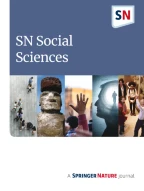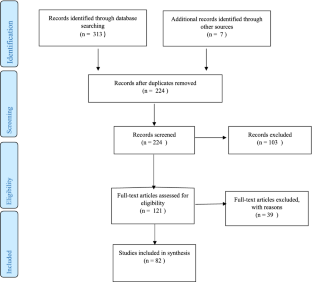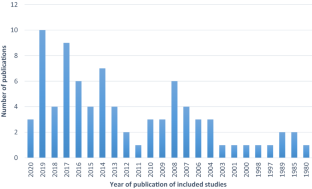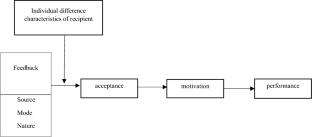The power of assessment feedback in teaching and learning: a narrative review and synthesis of the literature

Assessment feedback is heralded as an integral facilitator of teaching and learning. Despite the acknowledgement of its crucial role in education, there are inconsistencies in its powerful impact in teaching and learning: the role of the categories of feedback, the role of providers of feedback, constituents of effective feedback, and barriers to effective feedback. The focus of the narrative synthesis is to examine these different dimensions of assessment feedback and its powerful role in teaching and learning. A narrative evidence involving 82 studies was presented in thematic themes identified in literature. From the comprehensive review of the literature, the concept of assessment feedback and how it contributes to school effectiveness is thoroughly discussed. The article presents assessment feedback as a valuable factor for educators and students seeking to ensure continuous school improvement. It was found that a blended form of formative and summative feedback can improve teaching and learning. Feedback in any form should be specific, timely, frequent, supportive, and constructive. Negative feedback can distort learning, affective states of the recipient of feedback, and the job performance of employees. Findings from the review can assist researchers, authors, and readers of feedback reviews in the conceptualization of the role of assessment feedback in education. The study concludes with pedagogical implications for teaching and learning practice.
This is a preview of subscription content, log in via an institution to check access.
Access this article
Subscribe and save
Springer+ Basic
€32.70 /Month
- Get 10 units per month
- Download Article/Chapter or eBook
- 1 Unit = 1 Article or 1 Chapter
- Cancel anytime
Buy Now
Price includes VAT (France)
Instant access to the full article PDF.
Rent this article via DeepDyve



Similar content being viewed by others

Formative Assessment and Feedback Strategies
Chapter © 2022

Formative Assessment and Feedback Strategies
Chapter © 2023

How to Improve the Efficacy of Student Feedback
Article 09 June 2021
Explore related subjects
References
- Adalberon E (2020) Providing assessment feedback to pre-service teachers: a study of examiners’ comments. Assess Eval Higher Educ. https://doi.org/10.1080/02602938.2020.1795081ArticleGoogle Scholar
- Al-Hattami AA (2019) The perception of students and faculty staff on the role of constructive feedback. Int J Instr 12(1):885–894. https://doi.org/10.29333/iji.2019.12157aArticleGoogle Scholar
- Alt D, Raichel N (2020) Higher education students’ perceptions of and attitudes towards peer assessment in multicultural classrooms. Asia-Pacific Educ Res 29(6):567–580. https://doi.org/10.1007/s40299-020-00507-zArticleGoogle Scholar
- Aoun C, Vatanasakdakul S, Ang K (2016) Feedback for thought: examining the influence of feedback constituents on learning experience. Stud High Educ 43(1):72–95. https://doi.org/10.1080/03075079.2016.1156665ArticleGoogle Scholar
- Atwater LE, Brett JF (2006) 360-Degree feedback to leaders: does it relate to changes in employee attitudes? Group Organ Manag 31(5):578–600. https://doi.org/10.1177/1059601106286887ArticleGoogle Scholar
- Bader M, Burner T, Iversen SH (2019) Student perspectives on formative feedback as part of writing portfolios. Assess Eval 44(7):1017–1028. https://doi.org/10.1080/02602938.2018.1564811ArticleGoogle Scholar
- Banister C (2020) Exploring peer feedback processes and peer feedback meta-dialogues with learners of academic and business English. Lang Teach Res. https://doi.org/10.1177/1362168820952222ArticleGoogle Scholar
- Beran TN, Rokosh JL (2009) Instructors’ perspectives on the utility of student ratings of instruction. Instr Sci 37(2):171–184. https://doi.org/10.1007/s11251-007-9045-2ArticleGoogle Scholar
- Bergil AS, Atlib I (2012) Different perspectives about feedback on teaching. Procedia 46:5833–5839. https://doi.org/10.1016/j.sbspro.2012.06.524ArticleGoogle Scholar
- Black P, Wiliam D (1998) Assessment and classroom learning. Assess Educ 5(1):7–74. https://doi.org/10.1080/0969595980050102ArticleGoogle Scholar
- Bohndick C, Menne CM, Kohlmeyer S, Buhl HM (2019) Feedback in internet-based self-assessments and its effects on acceptance and motivation. J Further Higher Educ 44(6):717–728. https://doi.org/10.1080/0309877X.2019.1596233ArticleGoogle Scholar
- Boud D, Falchikov N (1989) Quantitative studies of student self-assessment in higher education: a critical analysis of findings. High Educ 18:529–549. https://doi.org/10.1007/BF00138746ArticleGoogle Scholar
- Brown G, Harris LR, Harnett JA (2012) Teacher beliefs about feedback within an Assessment for Learning environment: endorsement of improved learning over student well-being. Teach Teach Educ 28(7):968–978. https://doi.org/10.1016/j.tate.2012.05.003ArticleGoogle Scholar
- Carless D, Boud D (2018) The development of student feedback literacy: enabling uptake of feedback. Assess Eval Higher Educ 43(8):1315–1325. https://doi.org/10.1080/02602938.2018.1463354ArticleGoogle Scholar
- Chan JC, Lam S-F (2010) Effects of different evaluative feedback on students’ self-efficacy in learning. Instr Sci 38:37–58. https://doi.org/10.1007/s11251-008-9077-2ArticleGoogle Scholar
- Cohen VB (1985) A reexamination of feedback in computer-based instruction: implications for instructional design. Educ Technol 25(1):33–37 Google Scholar
- Colbran S, Gilding A, Colbran S (2016) Animation and multiple-choice questions as a formative feedback tool for legal education. Law Teach 51(3):249–273. https://doi.org/10.1080/03069400.2016.1162077ArticleGoogle Scholar
- Cooper NJ (2000) Facilitating learning from formative feedback in level 3 assessment. Assess Eval Higher Educ 25(3):279–291. https://doi.org/10.1080/713611435ArticleGoogle Scholar
- Crisp BR (2007) Is it worth the effort? How feedback influences students’ subsequent submission of assessable work. Assess Eval Higher Educ 32(5):571–581. https://doi.org/10.1080/02602930601116912ArticleGoogle Scholar
- Deeley SJ (2013) Summative co-assessment: a deep learning approach to enhancing employability skills and attributes. Act Learn High Educ 15(1):39–51. https://doi.org/10.1177/1469787413514649ArticleGoogle Scholar
- Donaldson ML, Papay JP (2015) An idea whose time had come: negotiating teacher evaluation reform in New Haven, Connecticut. Am J Educ 122(1):39–70. https://doi.org/10.1086/683291ArticleGoogle Scholar
- Ellegaard M, Damsgaard L, Bruun J, Johannsen BF (2017) Patterns in the form of formative feedback and student response. Assess Eval Higher Educ 43(5):727–744. https://doi.org/10.1080/02602938.2017.1403564ArticleGoogle Scholar
- Evans C (2013) Making sense of assessment feedback in higher education. Rev Educ Res 83(1):70–120. https://doi.org/10.3102/0034654312474350ArticleGoogle Scholar
- Fedor DB, Davis WD, Maslyn JM, Mathieson K (2001) Performance improvement efforts in response to negative feedback: the roles of source power and recipient self-esteem. J Manage 27(1):79–97. https://doi.org/10.1177/014920630102700105ArticleGoogle Scholar
- Flodén J (2016) The impact of student feedback on teaching in higher education. Assess Eval Higher Educ 42(7):1054–1068. https://doi.org/10.1080/02602938.2016.1224997ArticleGoogle Scholar
- Fluckiger J, Vigil YT, Pasco R, Danielson K (2010) Formative feedback: involving students as partners in assessment to enhance learning. Coll Teach 58(4):136–140. https://doi.org/10.1080/87567555.2010.484031ArticleGoogle Scholar
- Frank B, Simper N, Kaupp J (2017) Formative feedback and scaffolding for developing complex problem solving and modelling outcomes. Eur J Eng Educ 43(4):552–568. https://doi.org/10.1080/03043797.2017.1299692ArticleGoogle Scholar
- Gaertner H (2014) Effects of student feedback as a method of self-evaluating the quality of teaching. Stud Educ Eval 42:91–99. https://doi.org/10.1016/j.stueduc.2014.04.003ArticleGoogle Scholar
- Gibbs G, Simpson C (2005) Conditions under which assessment supports students’ learning. Learn Teach Higher Educ 1:3–31 Google Scholar
- Gibbs JC, Taylor JD (2016) Comparing student self-assessment to individualized instructor feedback. Act Learn High Educ 17(2):1–13. https://doi.org/10.1177/1469787416637466ArticleGoogle Scholar
- Goh K, Walker R (2018) Written teacher feedback: reflections of year seven music students. Austral J Teach Educ 43(12):30–41 ArticleGoogle Scholar
- Halverson R (2010) School formative feedback systems. Peabody J Educ 85(2):130–146. https://doi.org/10.1080/01619561003685270ArticleGoogle Scholar
- Hamilton IR (2009) Automating formative and summative feedback for individualised assignments. Campus-Wide Inf Syst 26(5):355–364. https://doi.org/10.1108/10650740911004787ArticleGoogle Scholar
- Harlen W, James M (1997) Assessment and Learning: differences and relationships between formative and summative assessment. Assess Educ 4(3):365–379. https://doi.org/10.1080/0969594970040304ArticleGoogle Scholar
- Harris LR, Brown GT, Harnett JA (2015) Analysis of New Zealand primary and secondary student peer- and self-assessment comments: applying Hattie and Timperley’s feedback model. Assess Educ 22(2):265–281. https://doi.org/10.1080/0969594X.2014.976541ArticleGoogle Scholar
- Harrison CJ, Könings KD, Schuwirth L, Wass V, Vleuten C (2015) Barriers to the uptake and use of feedback in the context of summative assessment. Adv Health Sci Educ 20:229–245. https://doi.org/10.1007/s10459-014-9524-6ArticleGoogle Scholar
- Hattie J (2008) Visible learning: a synthesis of over 800 meta-analyses relating to achievement. Routledge, Oxford BookGoogle Scholar
- Hattie J, Timperley H (2007) The power of feedback. Rev Educ Res 77(1):81–112. https://doi.org/10.3102/003465430298487ArticleGoogle Scholar
- Hellrung K, Hartig J (2013) Understanding and using feedback – a review of empirical studies concerning feedback from external evaluations to teachers. Educ Res Rev 9:174–190. https://doi.org/10.1016/j.edurev.2012.09.001ArticleGoogle Scholar
- Hoban G, Hastings G (2006) Developing different forms of student feedback to promote teacher reflection: a 10-year collaboration. Teach Teach Educ 22(8):1006–1019. https://doi.org/10.1016/j.tate.2006.04.006ArticleGoogle Scholar
- Hoo H-T, Tan K, Deneen C (2020) Negotiating self- and peer-feedback with the use of reflective journals: an analysis of undergraduates’ engagement with feedback. Assess Eval Higher Educ 45(3):431–446. https://doi.org/10.1080/02602938.2019.1665166ArticleGoogle Scholar
- Huang S-C (2015) Understanding learners’ self-assessment and self-feedback on their foreign language speaking performance. Assess Eval Higher Educ 41(6):803–820. https://doi.org/10.1080/02602938.2015.1042426ArticleGoogle Scholar
- Karlsen KH (2017) The value of oral feedback in the context of capstone projects in design education. Des Technol Educ 22(3):1–23 Google Scholar
- Kluger AN, DeNisi A (1996) The effects of feedback interventions on performance: a historical review, a meta-analysis, and a preliminary feedback intervention theory. Psycholog Bull 119(2):254–284. https://doi.org/10.1037/0033-2909.119.2.254ArticleGoogle Scholar
- Kmet LM, Cook IS, Lee RC (2004) Standard quality assessment criteria for evaluating primary research papers from a variety of fields. Alberta Heritage Foundation for Medical Research, Alberta Google Scholar
- Koka A, Hein V (2006) Perceptions of teachers’ positive feedback and perceived threat to sense of self in physical education: a longitudinal study. Eur Phys Educ Rev 12(2):333–346. https://doi.org/10.1177/1356336X06065180ArticleGoogle Scholar
- Kyaruzi F, Strijbos J-W, Ufer S, Brown GT (2019) Students’ formative assessment perceptions, feedback use and mathematics performance in secondary schools in Tanzania. Assess Educ 26(3):278–302. https://doi.org/10.1080/0969594X.2019.1593103ArticleGoogle Scholar
- Lepper MR, Chabay RW (1985) Intrinsic motivation and instruction: Conflicting views on the role of motivational processes in computer-based education. Educ Psychol 20(4):217–230. https://doi.org/10.1207/s15326985ep2004_6ArticleGoogle Scholar
- Lipnevich AA, Smith JK (2009) Effects of differential feedback on students’ examination performance. J Exp Psychol 15(4):319–333. https://doi.org/10.1037/a0017841ArticleGoogle Scholar
- Liu Y, Visone J, Mongillo MB, Lisi P (2019) What matters to teachers if evaluation is meant to help them improve? Stud Educ Eval 61:41–54. https://doi.org/10.1016/j.stueduc.2019.01.006ArticleGoogle Scholar
- Lutovac S, Kaasila R, Komulainen J, Maikkola M (2017) University lecturers’ emotional responses to and coping with student feedback: a Finnish case study. Eur J Psychol Educ 32:235–250. https://doi.org/10.1007/s10212-016-0301-1ArticleGoogle Scholar
- Mahfoodh OH (2017) “I feel disappointed”: EFL university students’ emotional responses towards teacher written feedback. Assess Writ 31:53–72. https://doi.org/10.1016/j.asw.2016.07.001ArticleGoogle Scholar
- May T (2013) Identifying the characteristics of written formative feedback used by assessors in work-based qualifications. J Vocat Educ Train 65(1):18–32. https://doi.org/10.1080/13636820.2012.727855ArticleGoogle Scholar
- McCarthy J (2017) Enhancing feedback in higher education: students’ attitudes towards online and in-class formative assessment feedback models. Act Learn High Educ 18(2):127–141. https://doi.org/10.1177/1469787417707615ArticleGoogle Scholar
- McKevitt CT (2013) Engaging students with self-assessment and tutor feedback to improve performance and support assessment capacity. J Univ Teach Learn Pract 13(1):1–20 Google Scholar
- Merry S, Orsmond P (2008) Students’ attitudes to and usage of academic feedback provided via audio files. Biosci Educ 1:1–11. https://doi.org/10.3108/beej.11.3ArticleGoogle Scholar
- Mireles-Rios R, Becchio JA (2018) The evaluation process, administrator feedback, and teacher self-efficacy. J School Leadership 28(4):462–487. https://doi.org/10.1177/105268461802800402ArticleGoogle Scholar
- Mireles-Rios R, Becchio JA, Roshandel S (2019) Teacher evaluations and contextualized self-efficacy: classroom management, instructional strategies and student engagement. J School Adm Res Dev 4(1):6–17 Google Scholar
- Montgomery JL, Baker W (2007) Teacher-written feedback: student perceptions, teacher self-assessment, and actual teacher performance. J Second Lang Writing 16(2):82–99. https://doi.org/10.1016/j.jslw.2007.04.002ArticleGoogle Scholar
- Moreno R (2004) Decreasing cognitive load for novice students: effects of explanatory versus corrective feedback in discovery-based multimedia. Instr Sci 32(1):99–113. https://doi.org/10.1023/B:TRUC.0000021811.66966.1dArticleGoogle Scholar
- Mubayrik HF (2020) New trends in formative-summative evaluations for adult education. SAGE Open. https://doi.org/10.1177/2158244020941006ArticleGoogle Scholar
- Narciss S, Huth K (2004) How to design informative tutoring feedback for multi-media learning. In: Niegemann HM, Leutner D, Brunken R (eds) Instructional design for multimedia learning. Waxmann, Munster, NY, pp 181–195 Google Scholar
- Nicol D, Thomson A, Breslin C (2014) Rethinking feedback practices in higher education: a peer review perspective. Assess Eval Higher Educ 39(1):102–122. https://doi.org/10.1080/02602938.2013.795518ArticleGoogle Scholar
- O’Donovan BM, Outer BD, Price M, Lloyd A (2020) What makes good feedback good? Stud High Educ. https://doi.org/10.1080/03075079.2019.1630812ArticleGoogle Scholar
- O’Neill G, McEvoy E, Maguire T (2020) Developing a national understanding of assessment and feedback in Irish higher education. Irish Educ Stud. https://doi.org/10.1080/03323315.2020.1730220ArticleGoogle Scholar
- Pagano R, Paucar-Caceres A (2013) Using systems thinking to evaluate formative feedback in UK higher education: the case of classroom response technology. Innov Educ Teach Int 50(1):94–103. https://doi.org/10.1080/14703297.2012.748332ArticleGoogle Scholar
- Panhoon S, Wongwanich S (2014) An analysis of teacher feedback for improving teaching quality in primary schools. Procedia 116:4124–4130. https://doi.org/10.1016/j.sbspro.2014.01.902ArticleGoogle Scholar
- Percell JC (2017) Lessons from alternative grading: essential qualities of teacher feedback. Clearing House 90(4):111–115. https://doi.org/10.1080/00098655.2017.1304067ArticleGoogle Scholar
- Perera J, Lee N, Win K, Wijesuriya L (2008) Formative feedback to students: the mismatch between faculty perceptions and student expectations. Med Teach 30:395–399. https://doi.org/10.1080/01421590801949966ArticleGoogle Scholar
- Perera L, Nguyen H, Watty K (2014) Formative feedback through summative tutorial-based assessments: the relationship to student performance. Account Educ 23(5):424–442. https://doi.org/10.1080/09639284.2014.947093ArticleGoogle Scholar
- Peters M, Godfrey C, Khalil H, McInerney P, Parker D, Baldini Soares C (2015) Guidance for conducting systematic scoping reviews. Int J Evid Based Healthc 13:141–146. https://doi.org/10.1097/XEB.0000000000000050ArticleGoogle Scholar
- Popay J, Roberts H, Sowden A, Petticrew M, Arai L, Rodgers M, Duffy S (2006) Guidance on the conduct of narrative synthesis in systematic reviews. A Product from the ESRC Methods Programme Version 1: b92
- Popham J (2008) Transformative assessment. Association for Supervision and Curriculum Instruction, Alexandria, VA Google Scholar
- Qunayeer HS (2019) Supporting postgraduates in research proposals through peer feedback in a Malaysian university. J Further Higher Educ 44(7):956–970. https://doi.org/10.1080/0309877X.2019.1627299ArticleGoogle Scholar
- Rand J (2017) Misunderstandings and mismatches: the collective disillusionment of written summative assessment feedback. Res Educ 97(1):33–48. https://doi.org/10.1177/0034523717697519ArticleGoogle Scholar
- Robins L, Smith S, Kost A, Combs H, Kritek PA, Klein EJ (2019) Faculty perceptions of formative feedback from medical students. Teach Learn Med 32(2):168–175. https://doi.org/10.1080/10401334.2019.1657869ArticleGoogle Scholar
- Ryan JJ, Anderson JA, Birchler AB (1980) Student evaluation: the faculty responds. Res High Educ 12(4):317–333. https://doi.org/10.1007/BF00976185ArticleGoogle Scholar
- Sadler RD (1989) Formative assessment and the design of instructional systems. Instr Sci 18:119–144 ArticleGoogle Scholar
- Schweinberger K, Quesel C, Mahler S, Höchli A (2017) Effects of feedback on process features of school quality: a longitudinal study on teachers’ reception of school inspection of Swiss compulsory schools. Stud Educ Eval 55:75–82. https://doi.org/10.1016/j.stueduc.2017.07.004ArticleGoogle Scholar
- Shute VJ (2007) Focus on formative feedback. Research Report. Educational Testing Service, Princeton, NJ Google Scholar
- Shute VJ (2008) Focus on formative feedback. Rev Educ Res 78(1):153–189. https://doi.org/10.3102/0034654307313795ArticleGoogle Scholar
- Skovholt K (2018) Anatomy of a teacher–student feedback encounter. Teach Teach Educ 69:142–153. https://doi.org/10.1016/j.tate.2017.09.012ArticleGoogle Scholar
- Tan FD, Whipp PR, Gagné M, Van Quaquebeke N (2020) Expert teacher perceptions of two-way feedback interaction. Teach Teach Educ 87:1–12. https://doi.org/10.1016/j.tate.2019.102930ArticleGoogle Scholar
- Taras M (2008) Summative and formative assessment: perceptions and realities. Act Learn High Educ 9(2):172–192. https://doi.org/10.1177/1469787408091655ArticleGoogle Scholar
- Tasker TQ, Herrenkohl LR (2016) Using peer feedback to improve students’ scientific inquiry. J Sci Teacher Educ 27:35–59. https://doi.org/10.1007/s10972-016-9454-7ArticleGoogle Scholar
- Van den Hurk HT, Houtveen AA, Van de Grift WJ (2016) Fostering effective teaching behavior through the use of data-feedback. Teach Teach Educ 60:444–451. https://doi.org/10.1016/j.tate.2016.07.003ArticleGoogle Scholar
- Van der Kleij FM, Adie LE, Cumming JJ (2019) A meta-review of the student role in feedback. Int J Educ Res 98:303–323. https://doi.org/10.1016/j.ijer.2019.09.005ArticleGoogle Scholar
- Watling C, Driessen E, Vleuten CP, Vanstone M, Lingard L (2013) Beyond individualism: professional culture and its influence on feedback. Med Educ 47(6):585–594. https://doi.org/10.1111/medu.12150ArticleGoogle Scholar
- Weaver MR (2006) Do students value feedback? Student perceptions of tutors’ written responses. Assess Eval Higher Educ 31(3):379–394. https://doi.org/10.1080/02602930500353061ArticleGoogle Scholar
- White HD (1994) Scientific communication and literature retrieval. In: Cooper H, Hedges LV (eds) The handbook of research synthesis. Russell Sage Foundation, New York NY, pp 41–55 Google Scholar
- Wiggins G (2011) Giving students a voice: The power of feedback to improve teaching. Educ Horiz 89(3):23–26 ArticleGoogle Scholar
- Winstone NE, Boud D (2020) The need to disentangle assessment and feedback in higher education. Stud High Educ. https://doi.org/10.1080/03075079.2020.1779687ArticleGoogle Scholar
- Yorke M (2003) Formative assessment in higher education: Moves towards theory and the enhancement of pedagogic practice. High Educ 45(4):477–501. https://doi.org/10.1023/A:1023967026413ArticleGoogle Scholar
- Zhong Q, Yan M, Zou F (2019) The effect of teacher feedback on the simple past tense acquisition in senior high school students’ english writing. World J Educ 9(3):30–37. https://doi.org/10.5430/wje.v9n3p30ArticleGoogle Scholar
Author information
Authors and Affiliations
- Southwest University, No. 2 Tianzhu Street, Beibei District, Chongqing, China Michael Agyemang Adarkwah
- Michael Agyemang Adarkwah
You can also search for this author in PubMed Google Scholar
Corresponding author
Ethics declarations
Data availability
All data analysed or generated are included in the paper.
Conflict of interest
The author declares that they have no conflict of interest.
Rights and permissions
About this article
Cite this article
Adarkwah, M.A. The power of assessment feedback in teaching and learning: a narrative review and synthesis of the literature. SN Soc Sci 1, 75 (2021). https://doi.org/10.1007/s43545-021-00086-w
- Received : 09 September 2020
- Accepted : 12 February 2021
- Published : 09 March 2021
- DOI : https://doi.org/10.1007/s43545-021-00086-w
Share this article
Anyone you share the following link with will be able to read this content:
Get shareable link
Sorry, a shareable link is not currently available for this article.
Copy to clipboard
Provided by the Springer Nature SharedIt content-sharing initiative
Keywords
- Assessment
- Feedback
- Formative assessment
- Summative assessment
- Evaluation





